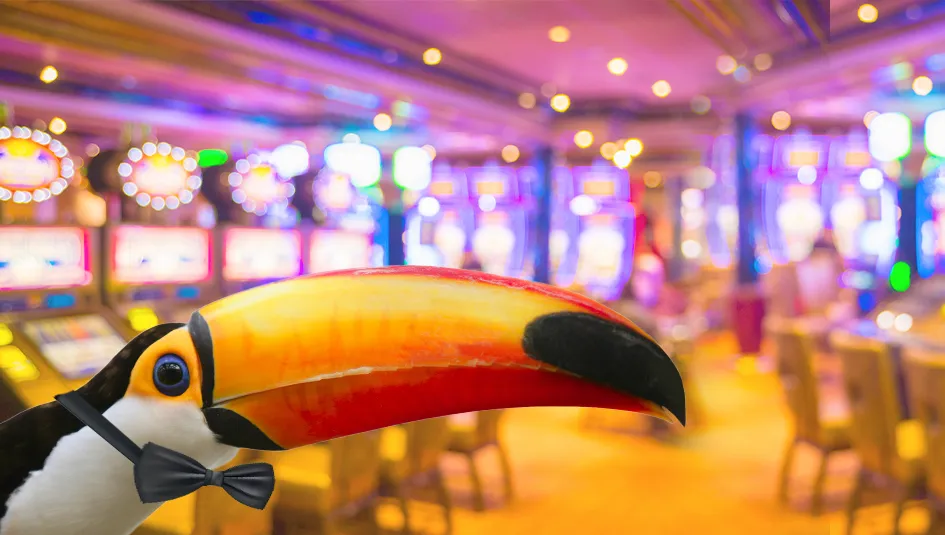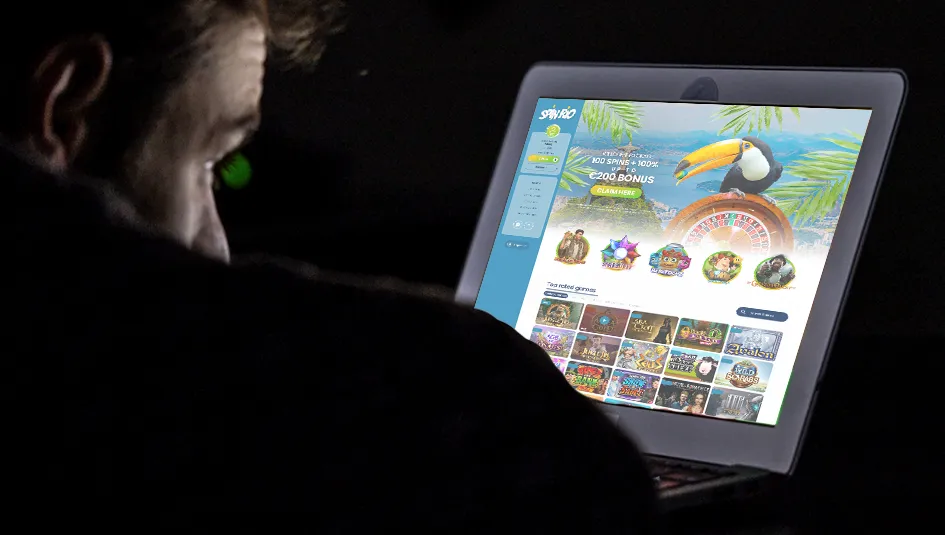Reasons why 7 Should be a Lucky Number
The number 7 has always held magical powers for many people. This isn't necessarily just a sort of cultural stereotype. You only have to take a look around the world to see that the number 7 makes an appearance everywhere. For example, there are seven days in a week, seven continents, seven deadly sins, seven levels of heaven, and seven colours in the rainbow. In Chinese culture, 7 represents Yin and Yang which are combined with the five elements of water, fire, earth, wood, and metal. Muslims visiting Mecca walk around that Kaaba 7 times.
It's an interesting fact, but if you ask anyone to pick a number, there’s a 25% chance that they will pick the number 7. Yet in spite of all these references, the number 7 consistently fails to be drawn in many lotteries around the world. Although 7 has a cultural significance for many people, it's probably not the number you want to depend on when you're playing casino games.
Some scientists claim the human memory works best when remembering up to 7 items and no more. They claim that all memory functions in repetitions of the number 7. Yet the fact that the number 7 is omnipresent doesn't mean the universe is utilising it in any way. If that were so, then we would see it appearing on the winning tickets of Mega Millions and Powerball more than any other number.
If you play the lottery, then it is statistically unlikely that you’ll see the same numbers between draws. Of course, it's possible that this does happen sometimes. However, in practice, it doesn't happen enough with the 7 for it to be deemed a lucky number.
Look at Previous and Present Lottery Draws
Many players think there is a correlation between numbers from previous draws and those they want to select for future draws. This is falling for the Gambler's Fallacy. Before we head down the rabbit hole of analysing numbers from previous draws, we should first put on a tin foil hat.
Thanks to Mega Millions keeping all their past records, we are able to analyse the last 40 draws. Within these, we can see that the number 7 appeared in 7 of these. Unfortunately, this isn’t going to help us to pinpoint any winning numbers. Maybe we should be looking at patterns in the lottery in the hope that it produces a lucky number. Depending on how you read them, there may be some interesting underlying patterns. However, whether you can draw any definitive conclusions from them is another matter.
One example where you may observe a trend is that in half of the instances where the number 7 appeared, a number between 60 and 69 followed. To be truthful, we’re not really sure this is a reliable trend that points to any single lucky number.
In reality, it's difficult to spot a lucky number because the volume of numbers is too big to analyse. Some players suggest that you can increase your statistical chances of winning by observing the numbers that are presently circulating. This means you'll have to observe the current numbers being used and assume that amongst those are some that are more likely to hit.
Even though lottery draws are completely random, some players believe that the software that makes the draws can be faulty and this is why one number may be drawn more often than others are. Because of this, the same players suggest you should check out any numbers that have recently appeared more than once. According to that logic, these are as good as lucky numbers.
Reading Your Zodiac Signs
All cultures try to make sense of the chaotic universe. Many do this by claiming there is some sort of order behind its design. Others accept its randomness, though continue to try to make sense of it.
This brings us to the signs of the zodiac. Throughout history, the positions of the constellation, and how, according to astrology, they relate to your date of birth, are an important aspects of your personality. This too is used as a reassuring sign that the universe has a logical design behind it. The question is, can you trust your stars to show you the best lucky numbers?
Mathematics vs Intuition
The problem here is that many people look to mathematics as a means of pinpointing numbers on the stars and determining how they should act according to arbitrary rules. Unfortunately, the logic of mathematics does not mix well with the ideas behind the signs of the zodiac. In spite of the multi-million dollar astrological industry, there is no proof that the constellations can help you find your lucky numbers. Reading into the signs of the zodiac is probably a strategy we would suggest you ignore.
A quick look on the internet and you'll find many resources claiming certain zodiac signs come pre-loaded with specific lucky numbers. We feel that these are answers to questions that haven't been asked. It's true that some gamblers will trust their zodiac sign and may even experience some wins. However, it still fails to show any guiding principles to help you pick your lucky numbers.
Are Popular Numbers Going to be Lucky?
Many people have a lucky number or lucky numbers and they will even call them “lucky.” Whether there is actually any evidence to support the claim that they really are lucky is a difficult answer. After all, these are simply numbers that people love and if you ask them, many would struggle to give you the definitive answer as to why.
In 2015, a study in the UK for the UK Numbers Festival showed that 7 was the favourite number with 12.6% of respondents. Another 6.8% chose the number 4. However, this has no bearing on these being lucky numbers.
This leads to the question as to whether you should use a popular number on the next craps bet or lottery ticket, simply because others favour it. We believe the answer is probably not. However, if these numbers have appeared on the previous lottery draws over the last few years, then there's no reason not to pick them.
There's always the possibility that the public favour these numbers because they have made previous players wealthy. Players then hold these digits in high esteem. Yet, in spite of the fact that randomness makes no sense, there's no need to take the fun out of searching for numbers that may bring you good fortune.
Do You Have Lucky Numbers?
It's a common belief in many cultures that you have a lucky number with your name written on it. This could really be any number that makes sense to you. From your birthday day to the date you met your significant other.
From a mathematical perspective, it's impossible to justify one number as having more significance than another. All that matters is that one number is more important to you than to other people. After all, the author Douglas Adams joked that the answer to the universe and everything was the number 42.
Battling Against the Universe
Because the universe is in a constant state of flux, we can look at the chaos through the lens of purely random events or equally, through our ideas of trying to make some sense out of disorder. The concept that some numbers are luckier than others are helps us bring a sense of order to the unknown. These elements extend to games of chance. Yet, who is to say if picking a number and favouring it by calling it “lucky” isn't one day going to win you the jackpot? As all options are unknown, then having certainty about particular numbers allows some players to feel more secure as they muddle their way through a chaotic world of random choices.

 How to Buy a Slot Machine for Your Home
How to Buy a Slot Machine for Your Home Sneaky Ways To Cheat At Slots
Sneaky Ways To Cheat At Slots